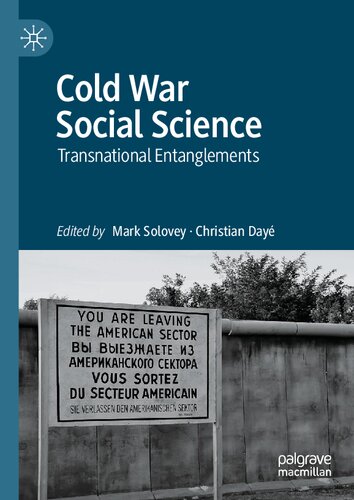

Most ebook files are in PDF format, so you can easily read them using various software such as Foxit Reader or directly on the Google Chrome browser.
Some ebook files are released by publishers in other formats such as .awz, .mobi, .epub, .fb2, etc. You may need to install specific software to read these formats on mobile/PC, such as Calibre.
Please read the tutorial at this link: https://ebookbell.com/faq
We offer FREE conversion to the popular formats you request; however, this may take some time. Therefore, right after payment, please email us, and we will try to provide the service as quickly as possible.
For some exceptional file formats or broken links (if any), please refrain from opening any disputes. Instead, email us first, and we will try to assist within a maximum of 6 hours.
EbookBell Team

4.4
22 reviewsThis book explores how the social sciences became entangled with the global Cold War. While duly recognizing the realities of nation states, national power, and national aspirations, the studies gathered here open up new lines of transnational investigation. Considering developments in a wide array of fields – anthropology, development studies, economics, education, political science, psychology, science studies, and sociology – that involved the movement of people, projects, funding, and ideas across diverse national contexts, this volume pushes scholars to rethink certain fundamental points about how we should understand – and thus how we should study – Cold War social science itself.